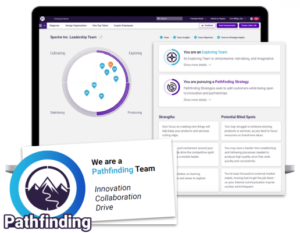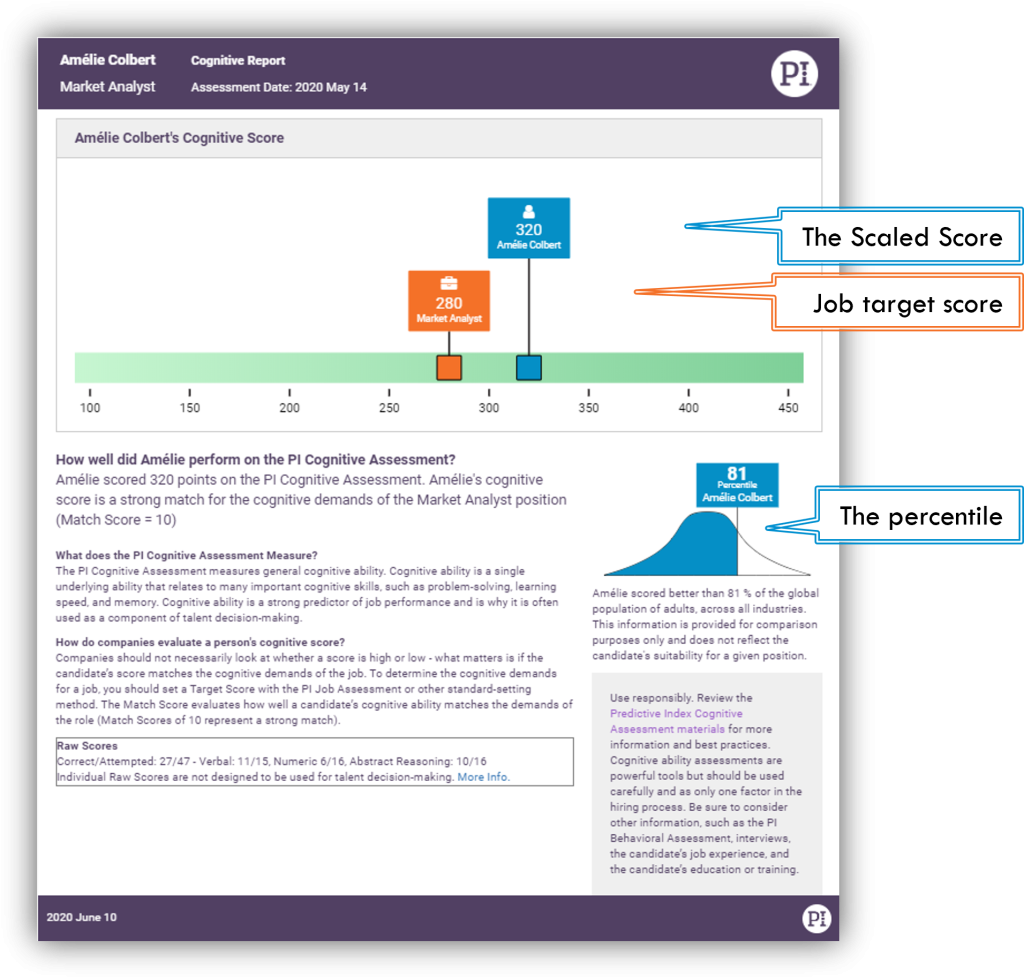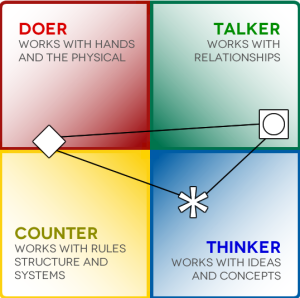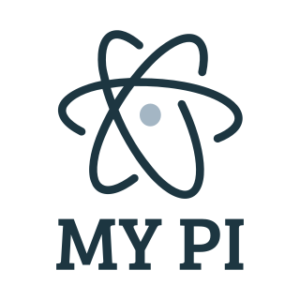
What is Team Discovery by The Predictive Index?
Unlock the full potential of your team with data-driven insights from Team Discovery™, helping you build a cohesive, high-performing unit aligned with your strategic goals.
Reading Time: 10 minutes
In today’s competitive business landscape, the quest for top talent has become more intense than ever. UK businesses are increasingly recognising the crucial role that the right hire plays not only in filling a vacancy but in enhancing team dynamics, driving innovation, and ultimately contributing to the organisation’s success. This shift towards valuing quality over quantity in recruitment has led to the rising prominence of assessments in the hiring process.
The traditional approach to hiring, often based on CVs, interviews, and gut feelings, is being supplemented—and sometimes replaced—by data-driven decision-making tools. Assessments offer a way to cut through the noise, providing objective insights into a candidate’s potential fit for a role and the wider team. They go beyond the surface level, tapping into aspects of personality, cognitive ability, and behavioural tendencies that interviews alone might not reveal.
This growing reliance on assessments is driven by several factors. First and foremost is the need for efficiency in the hiring process. In a fast-paced world, time is a commodity, and lengthy recruitment processes can be costly. Assessments help streamline these processes, allowing employers to quickly identify candidates who are most likely to succeed in a role.
Moreover, there’s an increasing awareness of the limitations of traditional hiring methods, particularly regarding biases. Whether conscious or unconscious, biases can skew decision-making and lead to less diverse workplaces. Assessments offer a more equitable approach, providing all candidates with a level playing field based on their abilities and potential rather than their background or how well they can sell themselves in an interview.
The integration of assessments into the hiring process is a testament to the growing emphasis on team composition and dynamics. The right mix of personalities and skills can enhance collaboration, drive innovation, and improve overall team performance. Assessments can be invaluable tools in building such synergistic teams, providing insights that help match individuals not just to the job but to the team and company culture.
As we delve deeper into the world of hiring assessments, we will explore three leading tools that are shaping the future of recruitment in the UK: the Predictive Index, DiSC, and the Birkman Method. Each of these tools brings its own set of benefits and limitations to the table, providing employers with a nuanced understanding of potential hires. Through this exploration, we aim to highlight why more companies are turning to assessments and how they can be leveraged to make smarter hiring decisions.
PI offers a comprehensive suite of assessments designed to revolutionise the hiring process, encompassing both cognitive abilities and behavioural tendencies. By integrating these two core assessments, PI provides a holistic view of potential hires, ensuring a strategic fit for the role and the organisational culture.
PI Cognitive Assessment
The PI Cognitive Assessment is grounded in the principle that general cognitive ability is a robust predictor of job performance, particularly in roles of high complexity. This assessment measures an individual’s capacity to adapt, learn, and solve problems, offering invaluable insights into their potential to succeed in a given role.
Benefits:
PI Behavioral Assessment
Complementing the cognitive aspect, the PI Behavioral Assessment delves into the behavioural drives and needs of individuals. This assessment is pivotal not only for hiring but also for fostering employee engagement and effective performance management.
Benefits:


Advantages:
Limitations:
Incorporating the Predictive Index’s cognitive and behavioural assessments into the recruitment process enables employers to navigate the complexities of talent acquisition with confidence. This strategic approach not only optimises hiring for current needs but also aligns with long-term talent management goals, ensuring a workforce that is not only skilled but also highly engaged and aligned with organisational values.
The DiSC Assessment, grounded in the psychological theories of William Marston, categorises behaviour into four primary types: Dominance (D), Influence (I), Steadiness (S), and Compliance (C). This framework provides a nuanced understanding of an individual’s behavioural style, focusing on how these styles influence their communication, conflict resolution, leadership, and teamwork capabilities. Unlike traditional hiring tools, DiSC is primarily leveraged to improve interpersonal relations and enhance team performance within an organisation.

Origin and Methodology:
Benefits:
Limitations:
Practical Applications:
Each of these providers demonstrates a deep commitment to leveraging the Predictive Index methodology to enhance talent management and recruitment processes. Their varied backgrounds and specialised approaches make them ideal partners for UK businesses seeking to optimize their workforce and drive organisational success.
The Birkman Method stands out as a multifaceted assessment tool, offering a deep dive into an individual’s personality and its impact on their work life and beyond. Developed by Dr. Roger W. Birkman in the early 1950s, this method has evolved from a paper-and-pencil test into a comprehensive digital assessment, accessible globally. It leverages the Five Factor Model (FFM), encompassing Openness, Conscientiousness, Extraversion, Agreeableness, and Neuroticism, to provide a detailed analysis of one’s personality.
Core Assessments:

Benefits:
Limitations:
Applications in the Workplace:
The Birkman Method’s application extends beyond hiring, providing invaluable insights for employee development, team building, and leadership effectiveness. Its emphasis on understanding the underlying motivations and stress behaviours of individuals offers a unique perspective that can significantly enhance organisational dynamics. However, its comprehensive nature means that successful implementation requires a commitment to thorough analysis and interpretation of the results, ensuring that the insights gained are effectively translated into actionable strategies for talent optimization.
You May Also Be Interested In
Everyone is asking what an effective CV will look like in 2024. Here is your guide to CV Writing in 2024.
The strategic integration of assessments like the Predictive Index, DiSC, and the Birkman Method into hiring and development processes marks a pivotal shift towards more nuanced, data-driven decision-making. These tools, each with its distinct focus and methodology, collectively offer a multifaceted approach to understanding the complexities of human behaviour and cognitive abilities in the workplace.
The Predictive Index stands at the forefront of this evolution, offering a dual-assessment approach that marries cognitive capabilities with behavioural tendencies. Its Cognitive Assessment emerges as a paramount predictor of job performance, particularly for roles that demand high complexity and adaptability. This, coupled with the Behavioural Assessment, not only streamlines the recruitment process but also lays a strong foundation for ongoing employee engagement and effective performance management, underscored by robust validity and a comprehensive array of validation studies.
Conversely, the DiSC Assessment shines in its capacity to enhance interpersonal dynamics within teams, focusing on communication styles and leadership effectiveness. While not designed for hiring, its strengths in fostering a collaborative and productive work environment are undeniable, providing leaders and teams with the insights needed to navigate the complexities of workplace relationships.
The Birkman Method, with its rich, multi-dimensional approach, delves deeper into personality traits and their impact on professional life. It stands out for its detailed analysis, offering an unparalleled depth of insight into individual motivations, stress behaviours, and potential career paths. This assessment’s comprehensive nature, while requiring a significant time investment, delivers a nuanced understanding that can greatly influence team dynamics, leadership development, and employee satisfaction.
These assessments, each with their unique contributions, underscore the importance of a strategic, well-rounded approach to talent management. By leveraging these tools, organisations are better equipped to make informed decisions that not only enhance the hiring process but also foster an environment of growth, collaboration, and sustained performance. In navigating the complexities of the modern workforce, the integration of such assessments into the fabric of talent strategy ensures a workforce that is not only competent but also deeply aligned with the cultural and operational goals of the organisation.
You May Also Be Interested In
Discover how The Predictive Index Job Assessment™ revolutionizes your hiring process, ensuring you make the right decision every time. Learn about its methodology, benefits, and real-world applications to streamline your recruitment strategy and enhance team performance
360 Talent Solutions Ltd is an Associate Partner of Humanostics® , a PI Certified Partner authorised to use the science, assessment software, and curriculum of management workshops of The Predictive Index.
In partnership with Humanostics, we provide companies in the UK and across Europe access to the assessment tools provided by The Predictive Index.
Take the 6-minute PI Behavioral Assessment™ today. Once you have completed the 6-minute assessment, I will send you a Full Behavioral Report by Predictive Index.
From supporting the growth of leading pharma companies over the past 10 years, I have learnt that when it comes to predicting future performance, technology is key:
For me, hiring without the use of psychometric assessments is like trying to put together a jigsaw puzzle with pieces missing … and no picture on the box. It’s not fun, it takes longer, and when you are almost finished, you realise you have pieces missing.
Take the assessment today and start measuring more to improve your recruitment.
If you are interested in learning more or are ready to incorporate behavioral data into your recruitment process, please contact me today, I will be happy to help.
Let’s get started!
Dave Crumby
Founder at 360 Talent Solutions
Certified Predictive Index Practitioner


Unlock the full potential of your team with data-driven insights from Team Discovery™, helping you build a cohesive, high-performing unit aligned with your strategic goals.

Explore how ‘MY PI: Using Science to Transform Your Workplace’ leverages behavioural science to revolutionise HR practices, offering in-depth insights, practical tools, and a vibrant community for HR professionals.

Join The Swiss Talent Optimisation Hub (STOH) to connect with HR professionals dedicated to leveraging Predictive Index tools and behavioural science to overcome unique challenges faced by Swiss businesses and drive organisational success.

Discover how Swiss companies can optimise their hiring and talent management strategies with the Predictive Index, a powerful tool that enhances workforce insights and decision-making, supported by Humanostics and 360 Talent Solutions.
| Cookie | Duration | Description |
|---|---|---|
| cookielawinfo-checbox-analytics | 11 months | This cookie is set by GDPR Cookie Consent plugin. The cookie is used to store the user consent for the cookies in the category "Analytics". |
| cookielawinfo-checbox-functional | 11 months | The cookie is set by GDPR cookie consent to record the user consent for the cookies in the category "Functional". |
| cookielawinfo-checbox-others | 11 months | This cookie is set by GDPR Cookie Consent plugin. The cookie is used to store the user consent for the cookies in the category "Other. |
| cookielawinfo-checkbox-necessary | 11 months | This cookie is set by GDPR Cookie Consent plugin. The cookies is used to store the user consent for the cookies in the category "Necessary". |
| cookielawinfo-checkbox-performance | 11 months | This cookie is set by GDPR Cookie Consent plugin. The cookie is used to store the user consent for the cookies in the category "Performance". |
| viewed_cookie_policy | 11 months | The cookie is set by the GDPR Cookie Consent plugin and is used to store whether or not user has consented to the use of cookies. It does not store any personal data. |